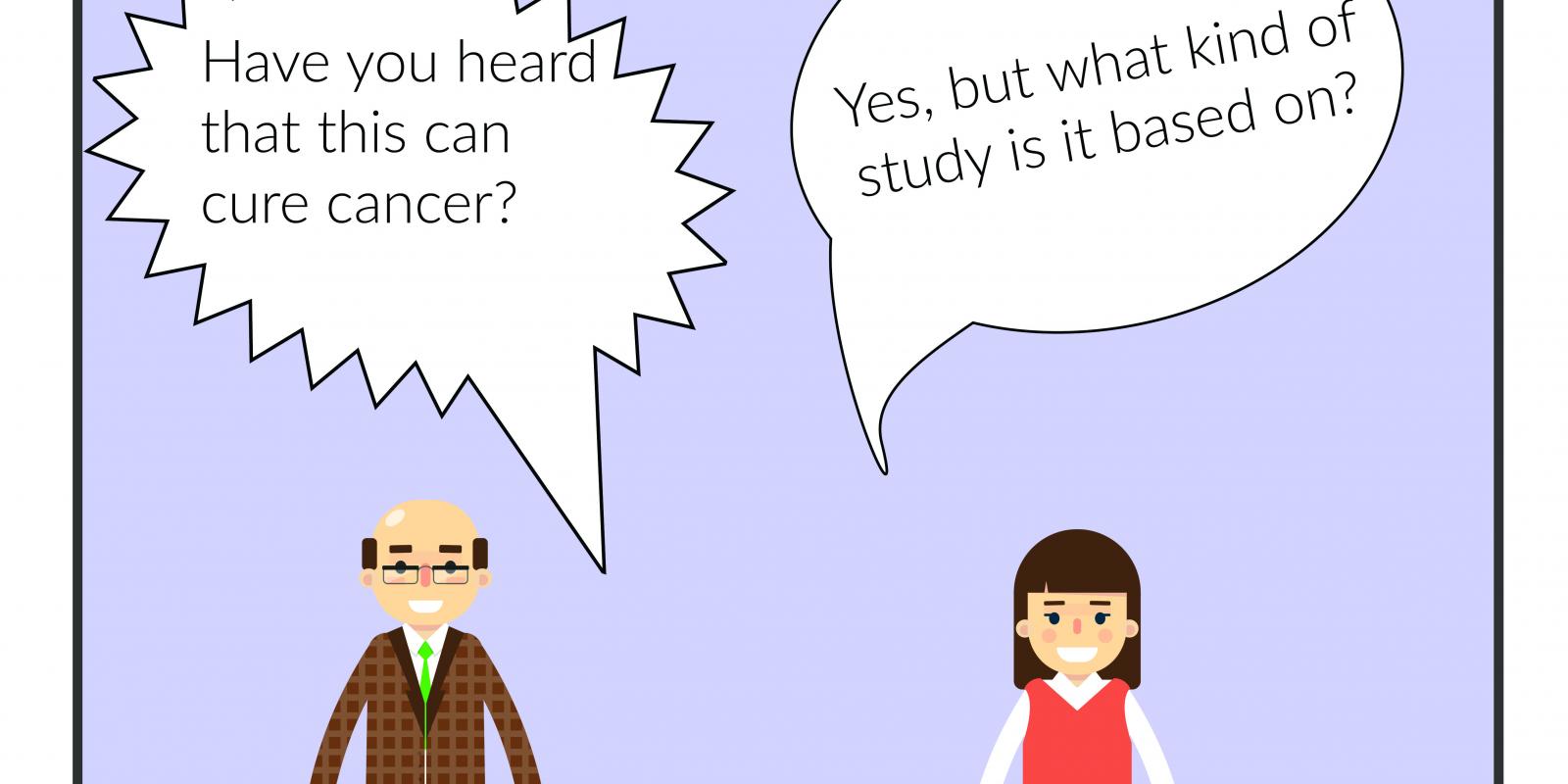A lot of the information given about CAM is provided by those who have an interest in you using the therapy/treatment. This information is often biased. We have therefore made a check list to help you make safe and informed treatment choices.
Check if the information builds on facts and solid research
- Check the source. Information from sources with a goal to earn money on a therapy or a product should always be checked against information from impartial sources such as health authorities and independent research libraries.
- Check what type of research that has been taken into account. Stories about positive experiences from people is not the same as the treatment or therapy having scientific and documented effect, or is safe to use. Research results from laboratories and animal testing are not automatically valid for humans. Read more about the possibilities and limitations of different types of research in our article Introduction to research.
- Check if the source informs about both advantages and disadvantages of the treatment. CAM treatments are often referred to as "natural and harmless". However, like other treatments, they can present a direct and indirect risk of health damage. Please read our general rules of caution to get an overview of some of the things you should consider before you use CAM.
Check the information for exaggerated promises
Check if there are exaggerations and promises such as "works against everything", "world news", "guarantee", "miracle cure", "natural and harmless" or "new invention". If you come across such allegations you should evaluate the information extra critically. If something sounds to good to be true, it's often just that.
Suggestions that CAM is better and safer than conventional medical treatment, is usually not documented. Advice from a CAM provider about using their treatment rather than medical treatment may indicate a malicious treatment that you better steer clear of.
Talk to your general practitioner
Discuss any information you have about CAM with your general practitioner or other health personnel before you use it. This is to get an evaluation based on your overall health situation.
Be skeptical
The points listed above indicate that you should show some skepticism about what treatment you are considering to use.
